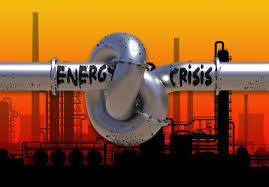

Stansberry Research – August 24, 2022
The following content is sponsored content by Stansberry Research.
The last time we had an energy crisis coupled with inflation (like we have right now) was the 1970s.
Back then, President Lyndon Johnson had begun massive spending and took on huge budget deficits to pay for the Vietnam war and his “Great Society” benefits: Medicare, Medicaid, Head Start, urban renewal, environmental issues, and new immigration policies, just to name a few.
Sure sounds a lot like today, doesn’t it?
Then…OPEC banned oil exports to the U.S. in October of 1973.
Gas prices quickly shot up 37 percent. Gas was rationed. Many stations ran out. Others locked up their pumps at night.
The ban on exporting oil to the U.S. lasted only five months—a tiny problem compared to what’s going on in the energy markets today—but by then the wheels of crisis were already in motion.
By 1974, inflation hit more than 11 percent, and the stock market (as measured by the Dow Jones Industrial Average) was plummeting.
After a few months, however, it seemed like the worst was over. Stocks soared about 48 percent starting in November of 1974.
But the bear market rally did not last.
It wasn’t long before stocks would collapse again, this time by more than 50 percent.
In total, this bear market would take the stock market down more than 72 percent.
Everyone wants to know what’s going to happen next in the markets and our economy. But few are looking at what happens historically when you pair inflation with an energy crisis—which is exactly what we are looking at right now.
Bill Bonner, co-founder of the world’s largest independent financial research firm, successful entrepreneur, owner of real estate on four continents, and business interests across the globe in over 12 countries, has prepared an analysis looking at the history and parallels of today in a unique forward-facing way.
In his nearly 50-year career, Bonner has made three big macroeconomic predictions.
Each one has ultimately turned out to be exactly right—although he was mocked each time.
And now, he’s making what he calls his: “Fourth and Final Prediction.”
It’s about two enormous trends (inflation and an energy crisis), which are barreling towards each other in America, like two runaway freight trains on the same track.
Bonner says: “The collision of these two inevitable trends will bring about some of the most difficult years in American history.”



